First-ever Horticulture Trade Forum was held in Khatlon province
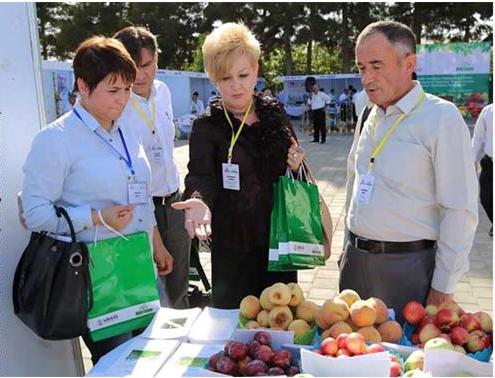
DUSHANBE, 09.08.2018. /NIAT “Khovar”/. Yesterday, August 8, the Executive body of state authority of Khatlon province with the support of the United States Agency for International Development (USAID) held first-ever Horticulture Trade Forum.
A two-day event that provided networking and partnership opportunities for more than 300 horticulture producers, traders, and buyers from Tajikistan, Kazakhstan, Uzbekistan, and the Kyrgyz Republic. Attendees also discussed innovative solutions to stimulate trade and promote horticultural exports in Central Asia.
Khatlon currently has the most extensive horticulture production potential in Tajikistan. Farmers in Khatlon even enjoy the earliest seasonal harvest in Central Asia, a key competitive advantage over other producers in the region. The purpose of this forum was to create business linkages between horticulture producers from Khatlon and buyers from Sughd and other countries in Central Asia that will lay the foundation for mutually beneficial business deals.
The agenda of the forum also included various sessions on post-harvest practices, cold storage management models, and transport and logistics information. The International Trade Center presented step-by-step guidance on how to export products with online support from their trade facilitation portal.
USAID has supported agriculture in Khatlon since 2012 through Feed the Future, America’s global poverty initiative, which has included efforts to secure land tenure for farmers, provide training on modern growing and harvest practices, expand cold storage facilities, and improve the quality of equipment and seeds. Farming families even receive health and nutrition information. These programs now partner alongside USAID regional trade projects, such as the USAID Competitiveness, Trade and Jobs Activity, in order to provide horticulture producers with greater access to local, regional and international markets.
The USAID Competitiveness, Trade, and Jobs Activity in Central Asia facilitates trade and employment in horticulture, tourism, transport and logistics across the five Central Asian economies. By helping firms become more regionally competitive and by addressing cross-border impediments to trade, USAID helps to develop a more diverse and competitive private sector and generate export-driven growth.
We will recall that the United States Agency for International Development (USAID) is an independent agency of the United States federal government that is primarily responsible for administering civilian foreign aid and development assistance. The Administrator is officially nominated by the President of the United States and confirmed by the United States Senate.











 Tajik Delegation Holds Investment Talks With International Financial Institutions in London
Tajik Delegation Holds Investment Talks With International Financial Institutions in London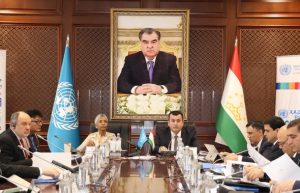 Tajikistan, United Nations Discuss 2027-2030 Sustainable Development Agenda
Tajikistan, United Nations Discuss 2027-2030 Sustainable Development Agenda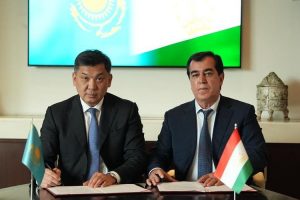 Tajik and Kazakh Railway Leaders Agree on Development of Transport Corridors
Tajik and Kazakh Railway Leaders Agree on Development of Transport Corridors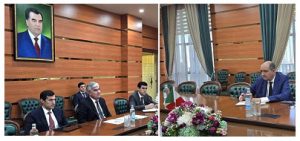 Financing Issues Related to the Continued Construction of the Rogun HPP Discussed in Dushanbe
Financing Issues Related to the Continued Construction of the Rogun HPP Discussed in Dushanbe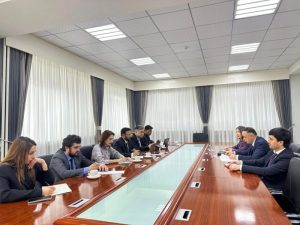 Implementation of Investment Projects and Attraction of Asian Development Bank Funds to Tajikistan’s Economy Discussed in Dushanbe
Implementation of Investment Projects and Attraction of Asian Development Bank Funds to Tajikistan’s Economy Discussed in Dushanbe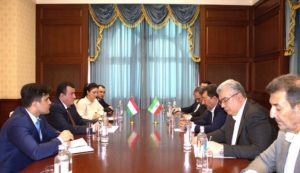 Tajikistan — Iran Expand Economic and Trade Cooperation
Tajikistan — Iran Expand Economic and Trade Cooperation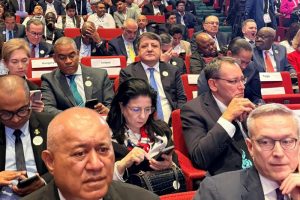 Tajik Delegation Participates in the Global India AI Impact Summit 2026
Tajik Delegation Participates in the Global India AI Impact Summit 2026 Tajikistan and Iran Discuss Direct Investment Opportunities in Tajik Economy
Tajikistan and Iran Discuss Direct Investment Opportunities in Tajik Economy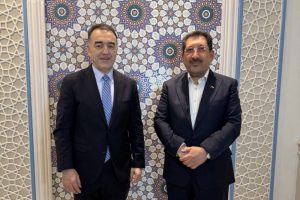 Tajikistan and Iran Discuss Prospects for Economic and Trade Cooperation
Tajikistan and Iran Discuss Prospects for Economic and Trade Cooperation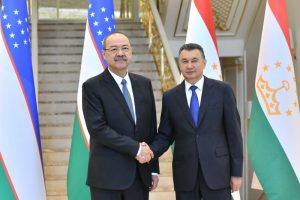 Tajikistan–Uzbekistan Commission Meeting Focuses on Expanding Economic Cooperation
Tajikistan–Uzbekistan Commission Meeting Focuses on Expanding Economic Cooperation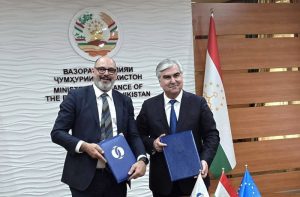 Tajikistan, EBRD sign loan and grant agreements for energy loss reduction project
Tajikistan, EBRD sign loan and grant agreements for energy loss reduction project Tajikistan to Welcome Global Investors at “Dushanbe Invest-2025” Forum
Tajikistan to Welcome Global Investors at “Dushanbe Invest-2025” Forum














